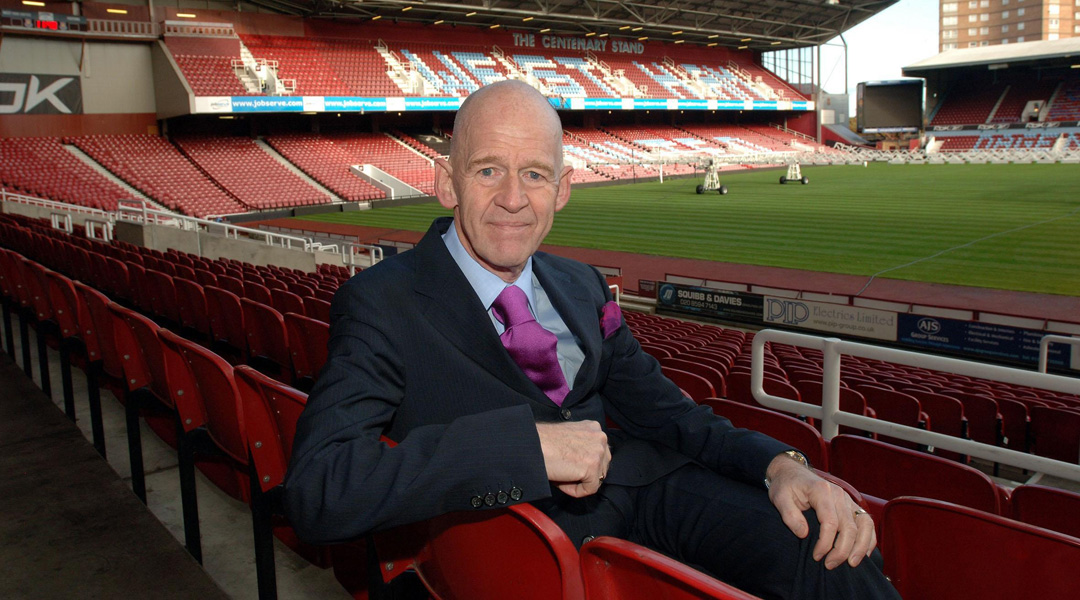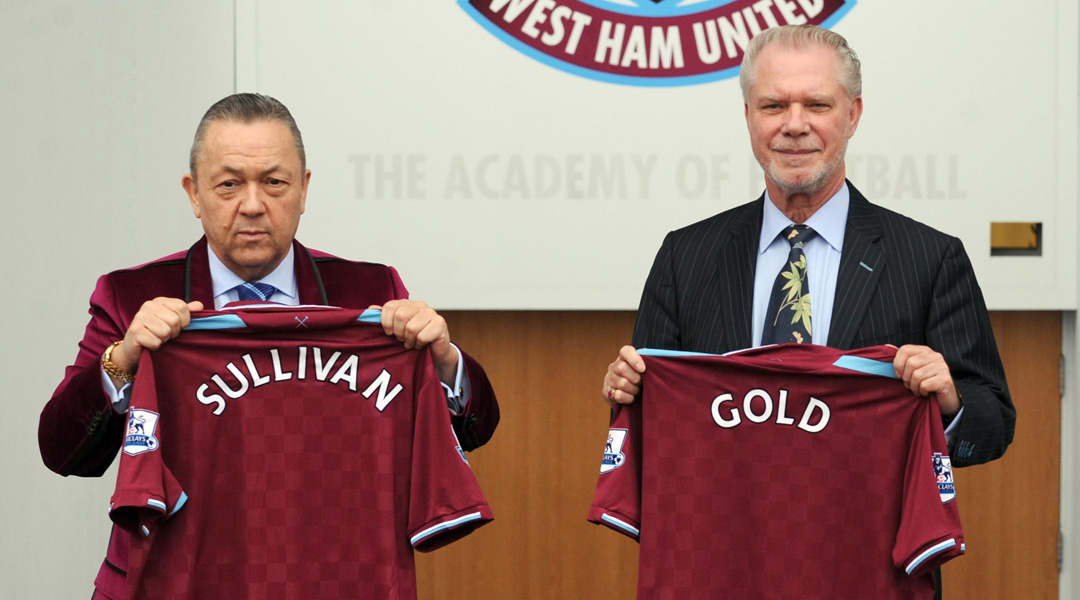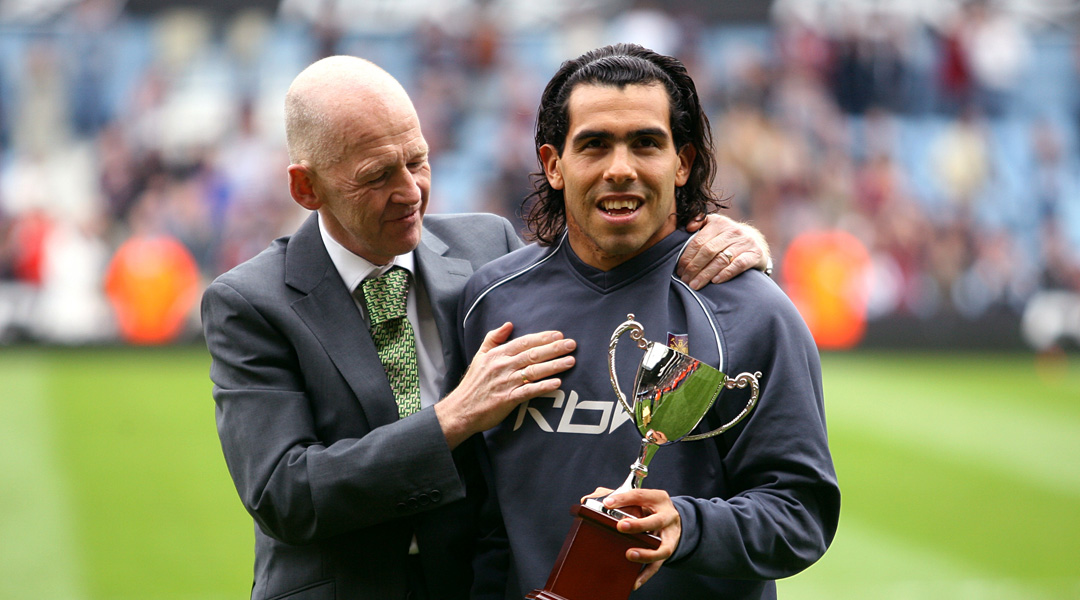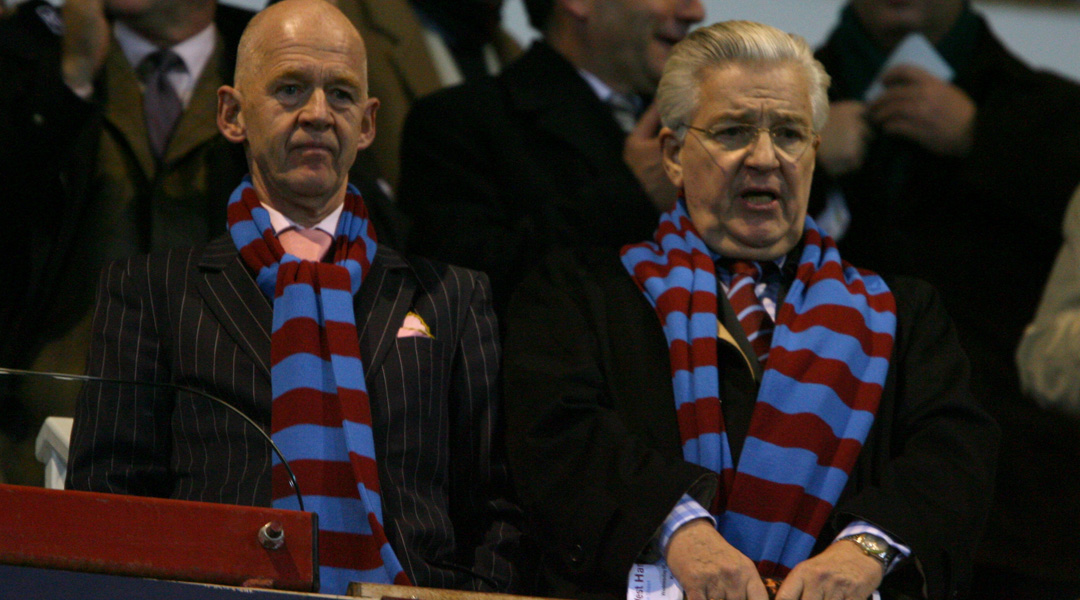Magnusson: If I owned West Ham 100% it would've been different
With West Ham seemingly facing an uncertain few months ahead, Richard Edwards speaks to the man who was previously at the helm of the Upton Park club, Eggert Magnusson, to see where the Icelander feels he went wrong...

A 5-0 FA Cup drubbing to a club in the Championship was hardly the ideal fillip for a side that has experienced the high of a Premier League victory just once in 13 matches.
In fact, in a season that has had more troughs than a bustling pig farm, West Ham’s humbling at the hands of Nottingham Forest represented a new low.
Sadly, with many subscribing to the Lambert Theory of FA Cup Evolution (2014), the club’s demise in a competition they last won (famously) in 1980 was greeted with a shrug of the shoulders rather than anger. After all, in the modern era of Bentleys, offshore banks and banter, it’s Premier League survival that should be pursued to exclusion of almost everything else.
Watching events at the City Ground unfold from a distant Reykjavik was Eggert Magnusson, the man whose controversial reign as chairman is still remembered with frosty antipathy from the club’s long-suffering supporters.
He headed up the Icelandic consortium that took over the running of West Ham in November 2006 and oversaw one of the most troubled periods in the club’s recent history, as the tentacles of the global financial crisis wrapped themselves firmly around E13.
Magnusson, though, tells FourFourTwo that as a true football man he always had West Ham’s best interests at heart and vigorously defends himself against the ferocious criticism he received when David Sullivan and David Gold took over the club in January 2010.

“It seems to be that it always happens when people come in and want to blame the people that were there before,” he says. “It’s similar with many managers. They come into a club and the first statement that comes from them is unbelievable – the players are not in a condition to play football.
Get FourFourTwo Newsletter
The best features, fun and footballing quizzes, straight to your inbox every week.
“But if you look at what has happened at West Ham in recent years, there have been many good things but also many mistakes – that’s how it is in football and life. You make decisions, some of them are correct and some are not correct. If you make no decisions then nothing happens.”
The decision to buy Andy Carroll is clearly one of the most questionable made by the current ownership team, with the former Newcastle and Liverpool man – a £15m acquisition by Sam Allardyce this summer – yet to play a match this season.
It’s not going well for West Ham at the moment and I worry about them a little bit
Carroll returned to training with the Hammers last week and his return to the first team can’t come soon enough. The Irons' forward line has looked so toothless this season, it has made Nobby Stiles look over-loaded with canines.
The club now face a situation similar to the one that Magnusson inherited back in 2006 and he knows better than anyone just how hard it is to escape relegation when you find yourself in the drop-zone going into a New Year.
“It’s not going well for them at the moment and I worry a little bit because when I came into West Ham we were in the bottom place of the Premier League over Christmas,” he says. “What really happened then was unbelievable. We won seven of our last nine matches and saved ourselves in the last game of the season at Manchester United. It was almost a dream come true. That was so tough, it was a miracle.

“The main thing for me as chairman during those months was to encourage everybody to believe that it was possible to stay up. That was the message every day during those long days and months when we were in big, big trouble.”
The losses announced by Bolton last week will be enough to give any owner of a side in the bottom half of the Premier League sleepless nights and clearly illustrate that relegation can potentially spell financial Armageddon for clubs with huge squads and salaries commensurate with the richest league in world football.
“It’s very, very difficult (if you do go down),” says Magnusson. “We saw Bolton Wanderers’ accounts and what it really means. Like everybody who is relegated from the Premier League you try to come back within two years, if that doesn’t happen it’s very, very hard to get back and balance the books. You need a rich owner who is there to help out.”
If I had owned it 100% I would have done things differently
Magnusson himself was merely the figurehead of an Icelandic takeover that floundered as soon as the full weight of the financial crisis hit. The country’s banks folded quicker than England’s top order Down Under and left the former president of the Iceland Football Association powerless to halt the dismantling of a side who were looking up rather than down under the stewardship of Alan Curbishley.
Now, with Sullivan and Gold focused firmly on survival once again, he says that he would have done things rather differently during his own turbulent reign as chairman.
“I’ve been involved in football all my life so when I was asked to go with my friend – who was, of course, the rich guy in this connection (Bjorgolfur Gudmundsson) – and buy West Ham United it was all about football and the possibility to try something new,” he says.

“Of course, there might be some different thinking from some of the owners in the Premier League today but that’s not for me to say. From my point of view, when I entered into it, it was a new adventure in football.
“I have mixed feelings. If I had been the owner of the club myself or owned it 100%, I would have done things very differently. But with hindsight, if I had known what I know now I perhaps wouldn’t even have done it at all.”
There’s a melancholy tone to Magnusson’s voice that suggests he is still scarred by the experience, but he’s far from the only foreign owner who has been chewed up and spat out by a league which is now a world away from the one graced by former Hammers’ greats Bobby Moore, Trevor Brooking and Geoff Hurst.
Owning a club can't be about enhancing your own personality or be about PR
Recent events at Cardiff have once again seen giant question marks raised against the attitude and motives of foreign owners in the Premier League but Magnusson believes that most are driven by football rather than ego.
“I don’t think it matters (whether an owner is British or foreign) as long as the person involved is there from a football perspective,” he says. “I just look at the club who is close to where I live now in London, Chelsea, and I think it’s great for Chelsea to have an owner like (Roman) Abramovich. So much has happened since he took over – what more could the fans ask for? I’ve no doubt in mind that for him it’s all about football.
“That has to be the case, though, it can’t be about enhancing your own personality or be all about PR. Sometimes people forget how the fortunes of some clubs have changed. People are putting in a lot of their own money.”
At Upton Park, however, it’s survival rather than European excursions that are dominating the thoughts. And the natives are getting restless.
